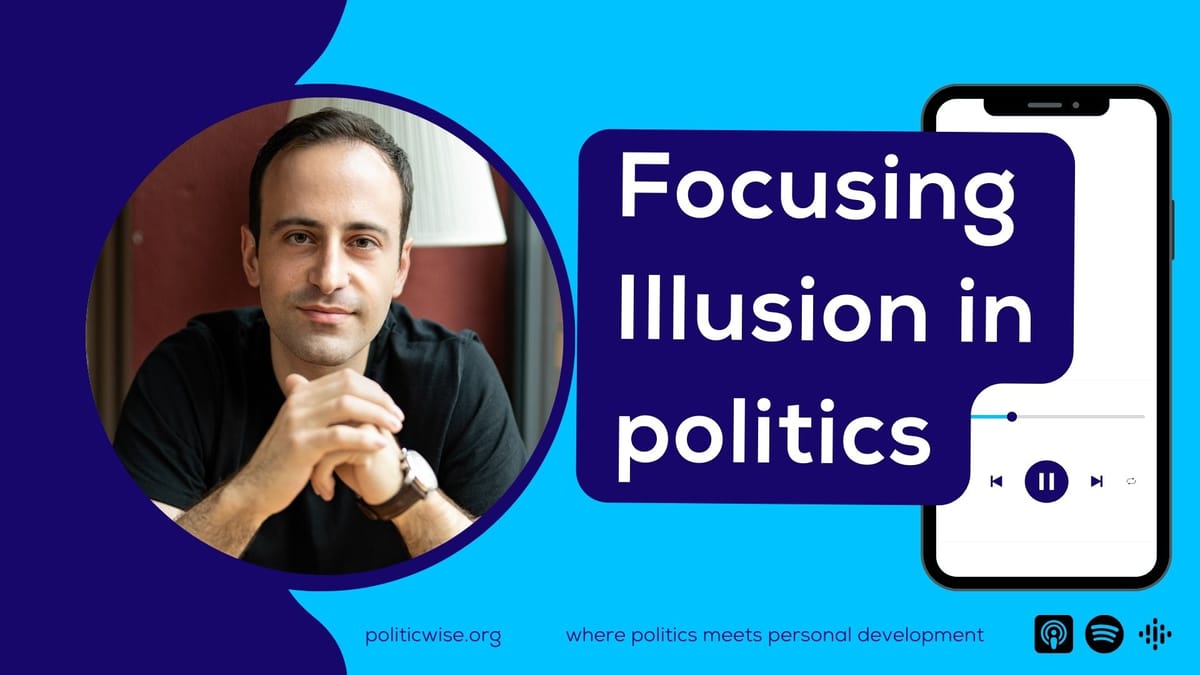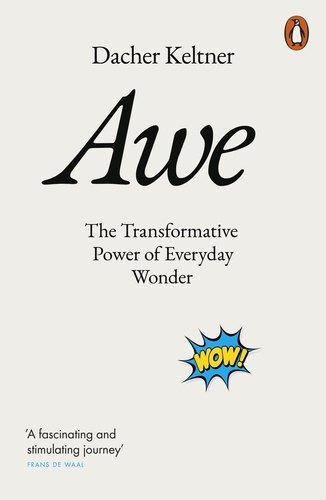Welcome to my weekly newsletter, where I share the key insights to fuel your personal & political journey.
If you're new: I'm Daniel, a political activist & campaigner, management consultant and now coaching leaders who want to refocus on what matters most.
And if you want to subscribe to politicwise: 👇
Now, let's jump into it...
Over the last 2 years of politicwise, 7 ideas emerged as critical for doing politics differently, and showing up as the best version of yourself, in the political arena:
- Power makes you egocentric, but you can do something about it
- Powerlessness is a fertile soil for authoritarianism - learn how to give power to the people
- Nothing is as important as you think it is, while you are thinking about it
- Being authentic means being the author
- Politics is the highest form of flow
- Politics needs fewer leaders, more followers
- Healthy politicians, healthy democracy
Which 1 of these ideas would you like to hear more about?
Let's have a look:
1) Power makes you egocentric, but you can do something about it
"Where does the interest of the country stop and the love of privileges begin? […] Regardless of how pure his intentions may originally have been, it takes a high degree of self-awareness and critical distance for someone in power - however well-meaning at the start - to recognize that moment. […] being in power makes me permanently suspicious of myself.” Vaclav Havel
- Power makes you feel in control (even if you have no control), focused on goal-attainment and less willing to consider opposing data or risks.
- You gain power by focusing on others, but once you have it, power warps your thinking and makes you more egocentric, and this shift away from others to yourself undermines your power over time.
- You can do something about it, but you are not immune. So:
- Limit exposure to power
- Switch context, be around people who don't care about your power and political persona
- Find moments of awe: forget yourself and feel connected to something larger
2) Powerlessness is a fertile soil for authoritarianism. Learn how to give power to the people
- Feeling powerless is stressful and over time can damage people's health. More than that, powerlessness creates fertile soil for authoritarianism.
- A democratic politician's job is to give power to the people.
- But how you give power, is not limited to institutional reform. It includes the way you talk to citizens, how you allow others to make judgments of their own, how you enable your team and volunteers, being of service rather than only fixing others' problems.
3) Nothing is as important as you think it is, while you are thinking about it
- It's a cognitive bias called the focusing illusion: while you think about something, that something seems more important to you than it would otherwise be
- Three implications for politics:
- Agenda-setting matters. You have a responsibility to set the topics and shift people's focus to what matters. That involves not answering a biased question, controlling the frame, and not being sidetracked into sham debates
- Political divides are more pronounced when all you do is talk and think about differences. The right questions can help you bridge divides. And considering the bigger picture makes you less certain of and less entrenched in your position, and more curious about how people come to differing views
- Focusing on the leaders of your organization/community makes them appear more important than they are. Don't underestimate your own agency
4) Being authentic means being the author
- 'Be yourself' is terrible advice, especially in politics: too vague, can be an excuse for fixed mindset, and overlooks the need for self-monitoring
- But authenticity has its place: not as fixed 'this is who I am' but as flexible 'this is who I am becoming', i.e. being self-authoring
5) Politics is the highest form of flow
"The best way to find yourself is to lose yourself in the service of others." (Mahatma Gandhi)
- Major sources of happiness, according to research: helping others, good relationships, being part of something larger than oneself
- 'Flow' is another, but connected peak experience: you are so engaged in an activity that is challenging and requiring your full attention and skill that you lose sense of time & space
- Being in politics can cover all:
- It's an opportunity to be of service to others, develop good relationships, be part of something larger than yourself
- It can be the highest form of flow: "one of the most enjoyable and most complex activities available to the individual, for the larger the social arena one moves in, the greater the challenges it presents" (Mihaly Csikszentmihalyi in 'Flow')
6) Politics needs fewer leaders, more followers
The power of the people is greater than the people in power - Wael Ghonim
- We glorify leaders. But they would be nothing without followers. It's the first followers especially who make or break the claim to leadership
- In tech, it's innovators who take the big risk to adopt first. But it's the early adopters who are the bridge to mass adoption by validating, refining and recommending
- We practice and learn about leadership. What would it mean to more consciously practice and learn about followership? What does it mean to be a good or bad follower? What would be different, if we had more good followers, especially the kind of early adopters, in politics?
7) Healthy politicians, healthy democracy
"the job of a politician should carry a health warning" - Ashley Weinberg
- Being in politics is a highly stressful job, more so than comparable jobs outside politics
- The (mental) health of politicians is important, for its inherent value and for its implications: politicians make decisions that affect our lives. Citizens have an interest in politicians making decisions in the best (physical & mental) state possible.
- For that, politics needs to move from being a high burnout environment (high challenge + low support) to a high performance environment (high challenge + high support)
"Ideas shape the course of history" - John Maynard Keynes
"The value of an idea lies in the using of it." - Thomas Edison
Which of these 7 ideas resonates most?
🎙️ My latest podcast

📚 What I read & listen to

🖋️ My favourite quote
“Our bodies respond to healthy doses of awe-inspiring nature like we respond to a delicious and nutritious meal, a good sleep, a quenching drink of water, or an uplifting gathering with friends or family: we feel nourished, strengthened, empowered, and alive.” (Dacher Keltner in 'Awe', p. 128)

